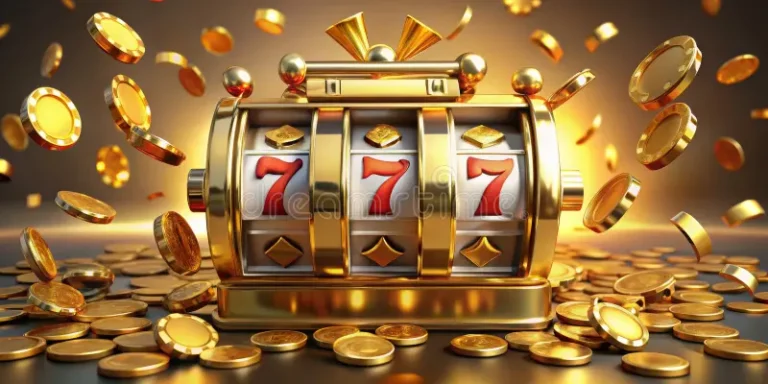Slot machines have been a cornerstone of the gambling industry for decades, attracting players with their flashing lights, exciting sounds, and the potential for big wins. But when it comes to understanding what drives a win, players often wonder: Is it pure luck, or is there psychology at play? The answer is both. While luck certainly plays a significant role, the design of slot machines is deeply rooted in psychology, influencing how players engage with them and the emotions they experience. This article explores the interplay between luck and psychology in the world of slot machines.
The Role of Luck in Slot Machines
At its core, slot machines operate based on random number generators (RNGs), which ensure that every spin is independent of previous ones. The RNGs produce random outcomes, meaning that no two spins are alike, and the odds of winning are completely left to chance. Players cannot control these outcomes or influence them through strategies or skill.
In this sense, luck is the primary factor when it comes to whether a player wins or loses. The odds of hitting a jackpot or even winning smaller prizes are predetermined by the machine’s design and payout structure, which the RNG generates with complete randomness. In other words, luck is the key player here—there’s no skill involved in predicting which symbols will appear on the reels.
The Psychology Behind Slot Machines
While luck determines the outcomes, psychology is what keeps players engaged and returning to play again. Casino operators carefully design slot machines to create a thrilling and rewarding experience, and they use psychology to encourage players to continue spinning the reels.
1. The Illusion of Control
One psychological tactic employed by slot machines is the “illusion of control.” Players often believe that they can influence the outcome of a spin through various actions. For instance, many machines allow players to adjust their bet size or push a button to stop the spinning reels. Even though these actions have no effect on the RNG, players feel as if they have some control over the outcome. This sense of control can lead to more frequent and longer play sessions, as players believe they can “master” the game.
2. Variable Reinforcement and Reward Schedules
Slot machines also exploit a psychological principle known as “variable reinforcement,” which is based on intermittent rewards. Players are rewarded unpredictably, which can lead to more persistent behavior. This is similar to how people become addicted to video games or social media. When a player wins, even if it’s a small amount, their brain releases dopamine—the “feel-good” chemical—creating a sense of pleasure and satisfaction.
Because rewards come at random intervals, players continue playing, hoping for that next win. The unpredictability of the outcome keeps players engaged, and they often keep playing in the hopes of winning big. The thrill of a possible future reward can be highly addictive, even if the actual payout is less frequent than anticipated.
3. Near Misses: A Powerful Psychological Trick
Near misses are another psychological trick that slot machines use to keep players coming back. A near miss occurs when the symbols on the reels are close to a winning combination, but not quite. For example, if a player lands two out of three matching symbols on a payline, it can feel as though they were just one symbol away from a big win.
Research has shown that near misses can be just as rewarding to the brain as an actual win, especially in the context of slot machines. This sense of “almost winning” motivates players to keep playing in search of that elusive jackpot, reinforcing the cycle of play and making it harder for players to walk away.
4. The Role of Lights and Sounds
The design of slot machines also takes into account how lights, sounds, and graphics impact players’ emotions. Flashing lights, celebratory music, and sound effects are all strategically used to create a sense of excitement. When a player wins, even a small amount, the machine may light up or produce a winning sound effect, creating a rewarding sensory experience. These sensory cues trigger the brain’s pleasure centers, making players feel good and reinforcing the behavior of continued play.
Conversely, when players lose, the machine might remain silent, or the sounds may be muted, creating a negative feedback loop. This sensory deprivation reinforces the idea that players need to “get back” to a rewarding experience, encouraging them to place more bets.
5. Escalating Stakes and High-Limit Machines
Slot machines that offer higher stakes or progressive jackpots create an additional psychological lure: the “big win” fantasy. Players are drawn to the potential for huge rewards, and the idea of a life-changing payout can be intoxicating. The higher the stakes, the more adrenaline players experience, which heightens the emotional investment. Even though the chances of winning big are slim, the thrill of chasing a large payout keeps players coming back for more.
Luck and Psychology: A Delicate Balance
In the end, slot machines are a combination of both luck and psychology. While the outcomes are governed by the random number generator, the way these games are designed plays a critical role in shaping players’ behavior. Psychology influences the decisions that players make, such as when to stop or how much to bet, and even how long they stay engaged with the game.
The randomness of the game ensures that no two outcomes are the same, but the psychology of the machine keeps players playing in pursuit of that next win. Whether it’s the illusion of control, the excitement of near misses, or the thrill of flashing lights and celebratory sounds, slot machines are designed to make the player feel rewarded—even when the odds are against them.
Conclusion
Slot machines are a perfect blend of luck and psychology. While luck determines whether a player wins or loses, psychology drives the behavior that keeps players engaged. The combination of random outcomes and psychological cues creates a compelling experience that keeps players coming back for more. Understanding this dynamic can help players become more aware of the forces influencing their decisions while playing. In the end, it’s not just luck that makes slot machines so captivating—it’s how they expertly manipulate the mind to keep the reels spinning.



